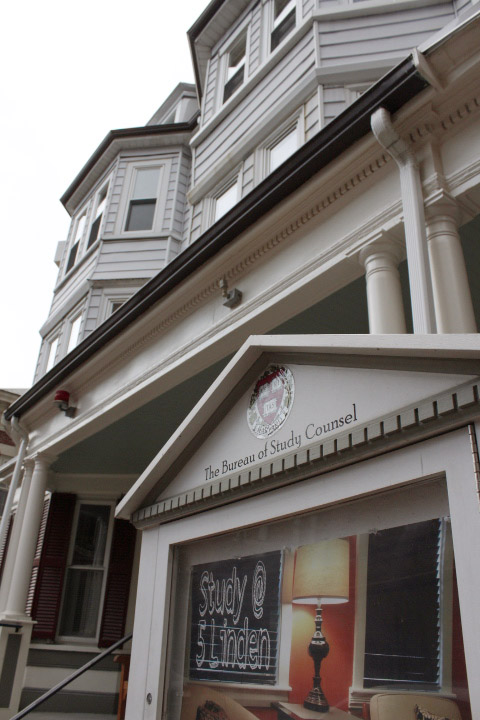
News
Cambridge Residents Slam Council Proposal to Delay Bike Lane Construction

News
‘Gender-Affirming Slay Fest’: Harvard College QSA Hosts Annual Queer Prom

News
‘Not Being Nerds’: Harvard Students Dance to Tinashe at Yardfest

News
Wrongful Death Trial Against CAMHS Employee Over 2015 Student Suicide To Begin Tuesday

News
Cornel West, Harvard Affiliates Call for University to Divest from ‘Israeli Apartheid’ at Rally
College Makes Two Offices Title IX Confidential Resources

Counselors at the Bureau of Study Counsel, the College’s Office of BGLTQ Student Life, and College peer counseling groups—unless legally compelled—will not disclose undergraduate reports of sexual harassment to a University Title IX coordinator or third party without the student’s permission.

These groups recently have been added to a list of confidential resources available to members of the Faculty of Arts and Sciences. Discussions about this change began this summer in response to student privacy concerns, University Title IX Officer Mia Karvonides wrote in a statement through University spokesperson Tania deLuzuriaga.
Last month, administrators detailed those “confidential resources” in a supplementary Frequently Asked Questions document clarifying Harvard’s Title IX policies, published in the wake of the release of the University’s spring sexual conduct climate survey.
Without student permission, the BSC, BGLTQ office, and peer counseling groups will not share “information students tell them with others at Harvard” or third parties, Karvonides wrote in an email.
“Certainly, these groups will encourage the student to access the supports and make the connection to the [Title IX] Coordinator,” she added.
Under Title IX, some Harvard affiliates must share reports of sexual harassment with the University. The College’s residential tutors and proctors, for example, must disclose sexual assault reports to a University Title IX coordinator, according to the Title IX FAQs. School-specific Title IX coordinators serve as liaisons to the University’s central Title IX office.
Unlike other confidential reporting services, such as the Office of Sexual Assault Prevention and Response’s rape crisis counselors and University mental health clinicians, counselors at the BSC, BGLTQ office, and College peer counseling groups are not legally privileged resources. This means that staff of those groups still may be required to share information in some circumstances, including “an external investigation, such as a criminal prosecution, civil lawsuit, or other government investigation,” according to the Title IX FAQs.
BSC counselors or BGLTQ officials could also share student information if a student faced “clear and present danger to self or others,” according to the BSC’s website. Information could also be disclosed if the reported perpetrator is a repeat offender, said Ann Gaylin, the College’s associate dean of undergraduate education for academic support.
Administrators said the change came in response to student concerns about privacy and that they hope the confidential resources will encourage more students to seek assistance.
“We have heard from Harvard College students that we need additional spaces on campus designated as confidential in order to reduce barriers for those seeking help,” Van Bailey, the head of the College’s BGLTQ office, wrote in an email.
The BSC’s designation as a confidential resource in the FAQs document comes after the office moved from the purview of Harvard University Health Services back to reporting administratively to the College, a change that provoked privacy concerns from undergraduates last semester. Some students worried that the confidentiality guaranteed by academic privacy laws would not be as strong as the protections of health privacy laws.
“It seemed appropriate to continue to treat these resources as confidential within the College to better serve its students,” Karvonides wrote.
“The BSC and the College have worked together to respond to student concerns about confidentiality, and the new BSC policies offer students greater privacy than that afforded by [the Family Educational Rights and Privacy Act] alone (although not the level of privileged confidentiality provided by licensed professionals),” BSC Director Abigail Lipson wrote in an email last month.
College officials are forming an Office of Undergraduate Education student advisory board, which they say will give students a platform for input in administrative decisions.
—Staff writer Melissa C. Rodman can be reached at melissa.rodman@thecrimson.com. Follow her on Twitter @melissa_rodman.
Want to keep up with breaking news? Subscribe to our email newsletter.
